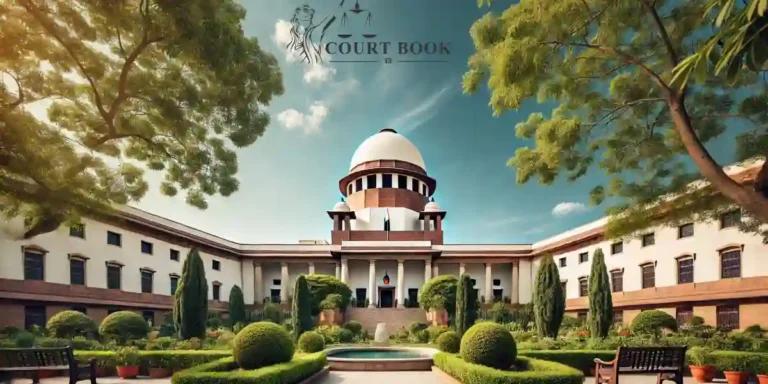The Supreme Court of India recently reaffirmed a crucial legal principle regarding motor accident claims: contributory negligence cannot be assumed without direct or corroborative evidence. This ruling came in the case of Prabhavathi & Others vs. The Managing Director, Bangalore Metropolitan Transport Corporation, where the Court overturned a High Court decision that had reduced compensation due to an alleged contributory negligence of the deceased.
Background of the Case
The case arose from a tragic road accident on June 6, 2016, when Boobalan, a 38-year-old man, lost his life in a collision between his motorcycle and a Bangalore Metropolitan Transport Corporation (BMTC) bus. His dependents sought compensation under the Motor Vehicles Act, 1988, claiming that the accident occurred due to the bus driver’s rash and negligent driving.
The Motor Accidents Claims Tribunal (MACT) initially awarded a compensation of ₹75,97,060/- based on Boobalan’s last drawn salary of ₹62,725 per month. The Tribunal found the bus driver solely responsible for the accident.
Read Also:- Supreme Court Protects Advocates from Criminal Liability Over Power of Attorney Verification
However, the High Court of Karnataka modified the Tribunal’s ruling, attributing 25% contributory negligence to the deceased. It also reduced his monthly income assessment to ₹50,000 and awarded ₹77,50,000 as compensation at a 6% interest rate.The Supreme Court, presided over by Justices Sanjay Karol and Prashant Kumar Mishra, disagreed with the High Court’s finding of contributory negligence. It emphasized that:
"Contributory negligence must be established through direct or corroborative evidence. Mere allegations of high-speed driving cannot form the basis for attributing negligence."
The Court relied on its previous ruling in Jiju Kuruvila v. Kunjujamma Mohan (2013) 9 SCC 166, where it was held that, in the absence of direct evidence, an assumption of negligence cannot be made.
Additionally, the Supreme Court restored the Tribunal’s assessment of the deceased’s monthly income at ₹62,725, highlighting that:
"Income assessment in compensation cases should consider proven income as per payslips and bank statements, and should not be arbitrarily reduced."
Read Also:- Supreme Court: Disputed Questions of Fact Do Not Bar High Court from Granting Relief Under Article 226
The Supreme Court recalculated the compensation, taking into account future prospects, applicable deductions, and the appropriate multiplier based on the deceased’s age (38 years). The final compensation amount was set at ₹1,20,84,925/- with 9% annual interest. The breakdown of the compensation is as follows:
Legal Precedents Cited
- Jiju Kuruvila v. Kunjujamma Mohan (2013) 9 SCC 166
- Sunita v. Rajasthan SRTC (2020) 13 SCC 468
- Rajwati alias Rajjo & Ors. v. United India Insurance Co. Ltd. (2022 SCC OnLine SC 1699)
These cases reaffirm that in motor accident claims, the standard of proof is based on the preponderance of probability rather than the strict criminal law standard of proof beyond a reasonable doubt.
Case : Prabhavathi and others vs The Managing Director Bangalore Metropolitan Transport Corporation















